
Cardiomyopathy in the UAE: Causes and Treatment
18 Oct, 2023
 Healthtrip
HealthtripCardiomyopathy, a group of heart muscle disorders, has emerged as a significant concern in the United Arab Emirates (UAE). This condition can have a profound impact on individuals' quality of life and pose a significant healthcare burden in the region. In this article, we will continue to explore the causes of cardiomyopathy, its symptoms, diagnostic procedures, available treatment options, and the risk of complications in the UAE.
Understanding Cardiomyopathy
Cardiomyopathy is a condition characterized by the weakening or dysfunction of the heart muscle, leading to reduced cardiac function. The heart, a muscular organ, pumps blood to the rest of the body, ensuring oxygen and nutrients reach vital organs. In cardiomyopathy, the heart struggles to perform this crucial function efficiently.
Transform Your Beauty, Boost Your Confidence
Find the right cosmetic procedure for your needs.

We specialize in a wide range of cosmetic procedures

There are several types of cardiomyopathies, including dilated cardiomyopathy, hypertrophic cardiomyopathy, restrictive cardiomyopathy, and arrhythmogenic right ventricular cardiomyopathy, each with its unique characteristics. In the UAE, dilated cardiomyopathy is one of the most prevalent forms.
Causes of Cardiomyopathy in the UAE
Several factors contribute to the rising incidence of cardiomyopathy in the UAE:
1. Genetic Predisposition
Genetic factors play a significant role in cardiomyopathy. In a country like the UAE, with a high rate of consanguineous marriages, the risk of inheriting genetic mutations that lead to cardiomyopathy is elevated.
2. Lifestyle Factors
Modern lifestyles in the UAE often involve sedentary habits, a high-salt diet, and obesity. These factors contribute to the development and progression of cardiomyopathy.
3. Hypertension
Hypertension (high blood pressure) is a leading cause of cardiomyopathy. The UAE has a relatively high prevalence of hypertension, which is often inadequately managed.
4. Diabetes
Diabetes is another significant contributor to the increased incidence of cardiomyopathy in the UAE. The nation has one of the highest rates of diabetes in the world.
Most popular procedures in India
Atrial septal defect
Upto 80% off
90% Rated
Satisfactory
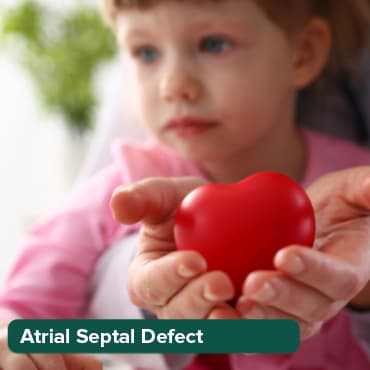
Coronary Angiogram a
Upto 80% off
90% Rated
Satisfactory
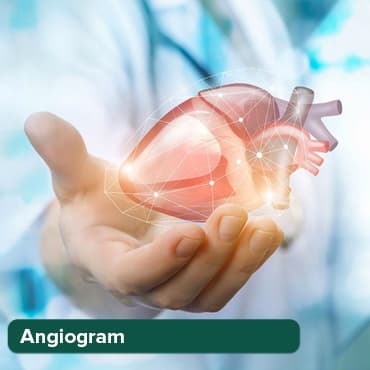
Coronary Angiogram C
Upto 80% off
90% Rated
Satisfactory
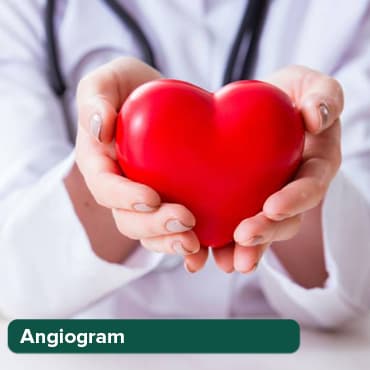
Liver Transplant
Upto 80% off
90% Rated
Satisfactory
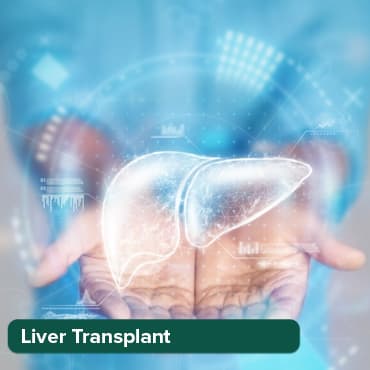
Total Hip Replacemen
Upto 80% off
90% Rated
Satisfactory
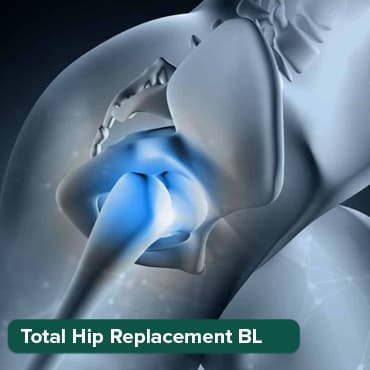
5. Viral Infections
Viral infections, particularly in the current global climate, can sometimes lead to cardiomyopathy as the virus may affect the heart muscle. Proper monitoring and early intervention are essential.
Diagnostic Procedures for Cardiomyopathy
When diagnosing cardiomyopathy, healthcare professionals employ a range of diagnostic procedures to assess the condition accurately. These procedures provide critical insights into the patient's heart health and help determine the appropriate treatment plan. Here are some key diagnostic methods used in the evaluation of cardiomyopathy:
1. Physical Examination
A thorough physical examination is conducted by a healthcare professional to assess the patient's symptoms, medical history, and overall health. This initial assessment often helps identify potential risk factors and provides a baseline for further diagnostic tests.
2. Electrocardiogram (ECG or EKG)
An electrocardiogram is a valuable tool for assessing the electrical activity of the heart. This non-invasive test involves placing electrodes on the patient's skin to record the heart's electrical signals. Irregular rhythms, which can be indicative of cardiomyopathy, can be detected through an ECG.
3. Echocardiogram
An echocardiogram, commonly referred to as an "echo," is an ultrasound of the heart. This procedure enables healthcare providers to visualize the size, shape, and overall function of the heart. It is particularly useful in diagnosing and assessing various types of cardiomyopathy, including dilated, hypertrophic, and restrictive cardiomyopathy.
4. Blood Tests
Blood tests are essential in diagnosing cardiomyopathy as they can help identify underlying causes and assess the overall health of the heart. These tests can detect infections, metabolic disorders, or elevated levels of specific enzymes that may indicate heart muscle damage, contributing to the diagnostic process.
5. Cardiac MRI or CT scan
Advanced imaging techniques, such as cardiac magnetic resonance imaging (MRI) and computed tomography (CT) scans, offer detailed pictures of the heart's structure and function. These imaging studies provide comprehensive insights into the heart's condition, aiding in the diagnosis and classification of cardiomyopathy.
6. Biopsy
In specific cases, a heart biopsy may be necessary to diagnose specific types of cardiomyopathies. During this procedure, a small piece of heart tissue is extracted and analyzed to determine the precise cause and nature of the condition, particularly for cases where genetic or inflammatory factors are suspected.
Risk Complications
Complications related to cardiomyopathy can be severe and may include:
- Heart failure: The heart's inability to pump blood efficiently.
- Arrhythmias: Irregular heart rhythms that can lead to fainting or sudden cardiac arrest.
- Blood Clots: Formation of blood clots in the heart, which can travel to other parts of the body and cause serious issues.
- Valvular Problems: Damage to heart valves due to the changes in heart structure and function.
- Cardiac Arrest: A sudden, unexpected loss of heart function.
Symptoms of Cardiomyopathy
Cardiomyopathy can manifest with a range of symptoms, which may include:
- Shortness of breath: Especially during physical activity or when lying flat.
- Fatigue: Persistent tiredness, even with adequate rest.
- Swelling: Particularly in the ankles, legs, and abdomen due to fluid retention.
- Dizziness or fainting: As a result of irregular heart rhythms or reduced blood flow.
- Chest pain or discomfort: Usually experienced in advanced stages of the condition.
Cost and Considerations of Cardiomyopathy in the UAE:
The cost of cardiomyopathy treatment in the UAE varies depending on the type of cardiomyopathy, the severity of the condition, and the treatments required. However, it can be a very expensive disease to treat.
Costs:
- Medications: Cardiomyopathy patients often need to take multiple medications to manage their condition. These medications can be expensive, especially if the patient is not insured or has limited insurance coverage.
- Medical procedures: Cardiomyopathy patients may need to undergo a variety of medical procedures, such as echocardiograms, stress tests, and cardiac catheterizations. These procedures can also be expensive.
- Surgery: Some cardiomyopathy patients may need surgery, such as a heart transplant or a left ventricular assist device (LVAD). These surgeries can be very expensive, even for patients with insurance.
In addition to the financial costs, cardiomyopathy can also have a significant impact on a patient's quality of life. Cardiomyopathy patients may need to restrict their activities and make lifestyle changes to manage their condition. This can lead to lost wages, lost productivity, and social isolation.
Considerations:
- Medication adherence: Cardiomyopathy patients need to be very careful to take their medications as prescribed. Skipping doses or not taking medications at all can lead to serious complications.
- Lifestyle changes: Cardiomyopathy patients need to make lifestyle changes, such as eating a healthy diet, exercising regularly, and quitting smoking. These lifestyle changes can help to improve their heart health and reduce their risk of complications.
- Regular follow-up care: Cardiomyopathy patients need to see their doctor regularly for follow-up care. This includes getting regular checkups and having tests to monitor their heart health.
Additional considerations:
- Healthcare insurance: It is important to have healthcare insurance that covers the cost of cardiomyopathy treatment. If you do not have healthcare insurance, you may be able to qualify for government assistance programs.
- Financial assistance: There are a number of organizations that offer financial assistance to cardiomyopathy patients. These organizations can help with the cost of medications, medical procedures, and other expenses.
- Support groups: Support groups can provide emotional support and practical advice to cardiomyopathy patients and their families.
Treatment Options in the UAE
The treatment of cardiomyopathy in the UAE encompasses a multidisciplinary approach, involving cardiologists, genetic counselors, dietitians, and exercise physiologists. Here are some key treatment options:
1. Medication
In many cases, cardiomyopathy can be managed with medication. Medications may include beta-blockers, ACE inhibitors, and diuretics, which help control blood pressure and reduce the workload on the heart.
2. Lifestyle Modification
Adopting a heart-healthy lifestyle is crucial in managing cardiomyopathy. This includes regular exercise, maintaining a balanced diet, avoiding excessive salt, and managing stress.
3. Device Therapy
For more severe cases, especially those with arrhythmias, implantable devices like pacemakers and defibrillators may be necessary to regulate heart rhythms.
4. Surgical Interventions
In some cases, surgical interventions such as septal myectomy or heart transplantation may be recommended, depending on the severity of the condition and the individual's overall health.
5. Genetic Counseling
Given the significant genetic component of cardiomyopathy, genetic counseling is essential for affected individuals and their families. This can help assess the risk of the condition in family members and guide preventive measures.
6. Education and Awareness
Raising awareness about the causes and symptoms of cardiomyopathy is vital for early diagnosis and prevention. Public health campaigns and educational initiatives can play a crucial role in this regard.
The Future of Cardiomyopathy Management in the UAE
Cardiomyopathy, a prevalent heart muscle disorder in the United Arab Emirates (UAE), continues to present challenges to the nation's healthcare system. However, the future holds promise with advances in medical science, technology, and public health initiatives. In this section, we will delve into the evolving landscape of cardiomyopathy management in the UAE.
1. Personalized Medicine
One of the most significant trends in the future of cardiomyopathy management is the shift towards personalized medicine. With advancements in genetics and genomics, healthcare providers will increasingly be able to tailor treatment plans to an individual's unique genetic makeup. Genetic testing will play a vital role in identifying those at high risk and selecting the most effective treatment strategies.
2. Telemedicine and Remote Monitoring
The UAE is poised to embrace telemedicine and remote monitoring as integral components of cardiomyopathy care. These technologies will enable patients to access healthcare services from the comfort of their homes, improving convenience and reducing the burden on healthcare facilities. Wearable devices and mobile apps will facilitate continuous monitoring, enabling early intervention in case of deteriorating heart function or symptoms.
3. Cutting-Edge Therapies
In the coming years, the UAE will likely adopt cutting-edge therapies for cardiomyopathy. Gene therapy and regenerative medicine hold promise for repairing damaged heart muscle. Stem cell therapies may become a viable option for restoring cardiac function. These novel treatments, combined with traditional medications and surgical interventions, offer new hope for patients with cardiomyopathy.
4. Prevention and Awareness
Prevention and awareness initiatives will continue to play a crucial role in combating cardiomyopathy in the UAE. Public health campaigns will promote heart-healthy lifestyles, including regular exercise and balanced nutrition. Furthermore, genetic counseling will become more accessible to individuals and families with a history of cardiomyopathy, allowing them to better understand and manage their risks.
5. Research and Clinical Trials
Ongoing research and clinical trials will further our understanding of cardiomyopathy and its underlying causes. The UAE's participation in international studies and trials will help develop better diagnostic tools and innovative treatments. This research will contribute to a deeper knowledge of the condition and improve outcomes for those affected.
6. Multidisciplinary Approach
The future of cardiomyopathy management will continue to emphasize a multidisciplinary approach. Teams of healthcare professionals, including cardiologists, genetic counselors, nutritionists, and physiotherapists, will collaborate to provide comprehensive care. This holistic approach will focus on addressing not only the physical but also the emotional and psychological aspects of living with cardiomyopathy.
Conclusion
Cardiomyopathy is a growing health concern in the UAE, with various factors contributing to its prevalence. Understanding the causes, symptoms, diagnosis, treatment options, and risk complications is critical to effectively manage and prevent this condition. By promoting a healthy lifestyle, genetic screening, and early intervention, the UAE can work towards reducing the burden of cardiomyopathy and improving the cardiovascular health of its population.
Early diagnosis and appropriate management are essential in improving the quality of life and prognosis for individuals living with cardiomyopathy in the UAE. Regular medical check-ups and lifestyle modifications are vital in preventing and managing this condition effectively. Raising awareness about this condition is key to enhancing public health in the region.






